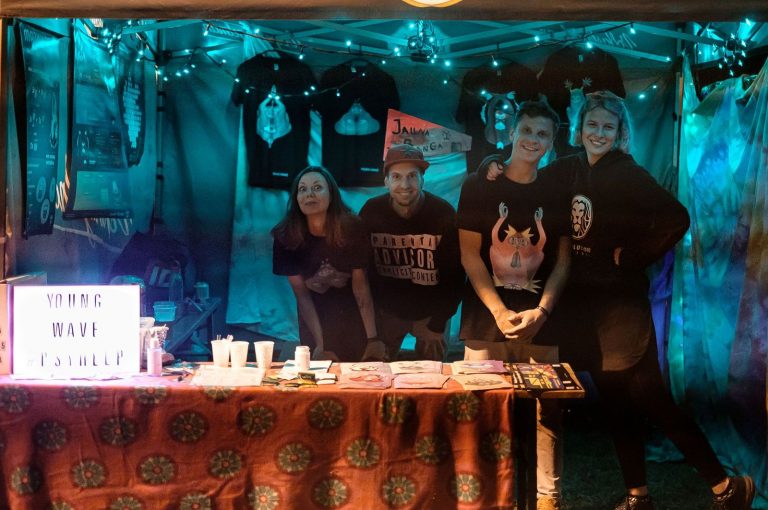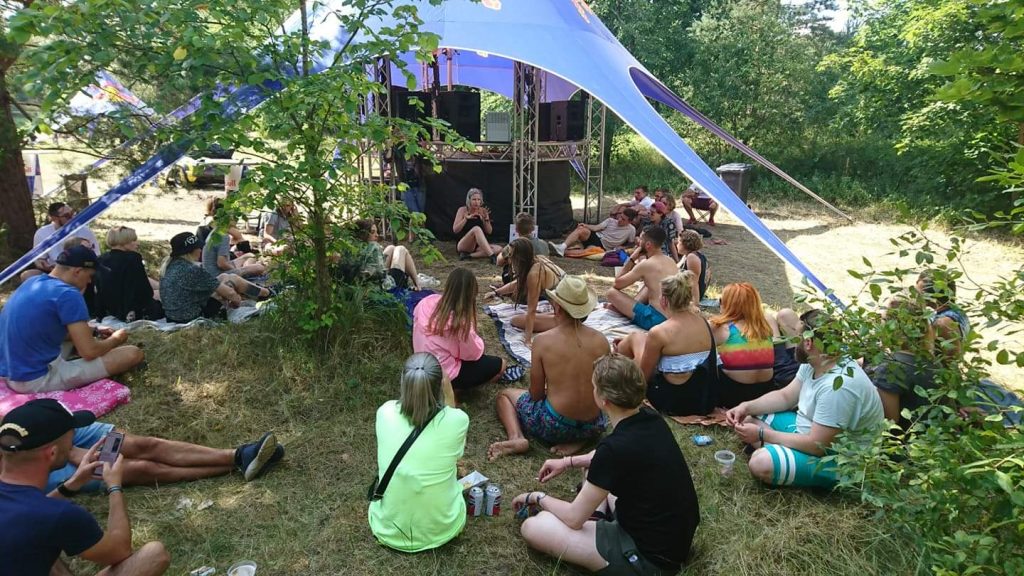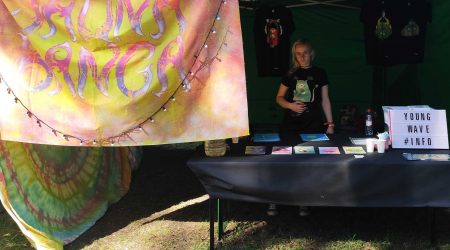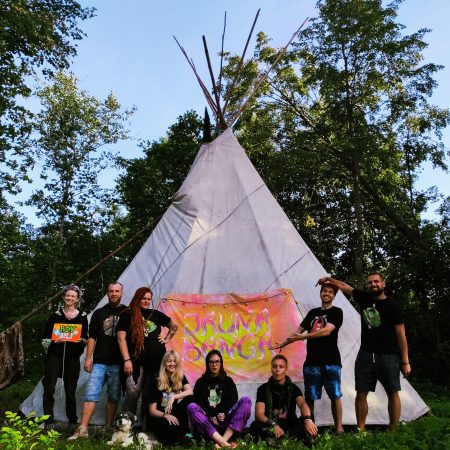Young Wave
“Young Wave” is a non-governmental organization, established by young people who use drugs and who are affected by harmful drug policies in Lithuania, to embrace each other and be a respectable and constructive part of drug policy formation. Mission of the organization is to create society where people using psychoactive substances have universal access to health and social services without a fear of being stigmatized or discriminated against.
Organization provides a wide range of harm reduction initiatives. All harm reduction services provided by the “Young Wave” are based on the peer-to-peer approach. During 2017-2019, “Young Wave” participated in music festivals, where provided harm reduction and PsyHelp services: distribution of safer drug use equipment, information about psychoactive substances and minimization of the risks, related to it, as well drug checking (reagent tests), PsyHelp services. Moreover, organization seeks to make political and social changes by organizing discussions, conferences, seminars, trainings and different social activities, such as campaigns and workshops.
Could you please share, how drug checking started in Lithuania and how you are implementing it?
It all started with a strong desire to create a better society. Harsh drug policies haven’t just failed to reduce the availability and use of drugs; however, they have created a whole set of problems. So, few young Lithuanians were actively involved in international drug policy issues. They were members of various international organizations, traveled worldwide, and saw inspiring harm reduction practices in other countries. One day, in 2017, they decided to unite and create the “Young Wave.” So now it’s the third year we are promoting humane drug policy and providing harm reduction services. Drug checking became a natural part of our services.
We are the first and only Lithuania organization to provide drug checking services in nightclubs and music festivals. Due to legal restrictions, we cannot use professional equipment to determine the full composition of the particular drug sample. For this reason, we use reagent tests that do not require the consultant to handle drugs. In short, we are distributing reagent test kits to people to check their substances and come back to us for the consultation. Even though reagent tests cannot show the sample’s full composition, they allow drug users to receive information on whether the sample contains the psychoactive substance they intended to use. Moreover, they can detect some of the novel psychoactive substances or identify particular contaminants.
Probably it’s important to mention that our services are not supported by government funding. We buy and distribute reagents with the financial support of the different small projects and individual support of people who use these services or believe in their necessity.
What was the reason that you started to implement drug checking as part of your harm reduction services?
As I’ve already mentioned, this was quite a natural decision that was based on evidence and the acceptable practices in providing drug checking in other countries. It’s vital to say that drug checking gives us a unique opportunity to reach a group of primarily young people who do not come to us otherwise. We seek to enhance their experience by providing information and sup¬port, which helps them stay safe and make safer and healthier choices. Moreover, drug checking is often the first point of contact with the social support system for many users. To be honest, before starting the distribution of reagent test kits, we didn’t know that the results will be so surprising and alarming. Alarming in a way, that lots of substances, which are tested, contain synthetic cathinone’s. Drug checking in Lithuania revealed a problem of new psychoactive substances, which was not that much discussed in Lithuania. We were the first organization, which started to communicate with society about new psychoactive substances and risks, related to the use of it.

This year, during the small grant project, you focused on the assessment of the pilot project of drug checking. Could you please share what are the main results, conclusions from your assessment?
Yeah, our primary goal was to assess drug-checking pilot intervention, which we were implementing the last 2 years. During the implementation of the small grant activities, we have participated in 4 festivals and events where we’ve provided harm reduction services (including drug checking) and conducted semi-structured interviews with clients. Moreover, we conducted interviews with various key stakeholders (nightlife professionals, peers, other harm reduction NGO’s, health authorities, other officials).
This year, when providing drug checking services, we’ve distributed 77 reagent tests to 46 festival-goers. 39 of them returned for further consultations with peer consultants. Various novel psychoactive substances were detected in the samples, such as mephedrone, methylone, 3-MMC. Ephedrine and lidocaine also were detected. After the results of testing, almost a third of users chosen not to use the substance or to use it less than they had planned or weren’t sure what they will do. It’s worth to mention that the vast majority of users planned to share tested substances with other people (ranging from 2 to 20 people, 5 on average). We notice that the information we provide could probably reach far more people and thus influence their decision to use the substance.
Most of the people who used our services reported they would use it again. More than 90% of them rated the service as very good. None of them gave a low rating to the service overall. Respondents valued the non-judgmental environment, where they were able to discuss their drug use and other drug-related questions.
However, we could identify the limitations of the current service. Clients of the service noted that they would like to find out the more detailed composition of the substance. We should stress it out, that even though service clients mentioned that they felt safe when talking to the peers, some of them were worried that someone, such as civilian officers, could follow and arrest them.


What do you think should be the next steps in promoting drug checking in Lithuania?
We have identified several improvements to consider in future service design and delivery, but now we should wait for a while. Lithuanian Parliament and the government has changed this year, so we expect some changes in drug policy that will facilitate the implementation of proper drug testing service. However, as for the first step, we believe that it would be essential to set up a stakeholder working group in which we should discuss the regulatory processes. We clearly see the need for networking and cooperation between the various stakeholders and actors, such as nightlife professionals, harm-reduction NGOs, health and law enforcement authorities. Networking would make it possible to create an effective drug checking mechanism, monitor emerging trends and develop early warning systems on the national level when needed.

